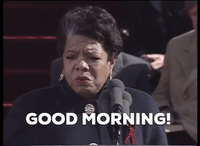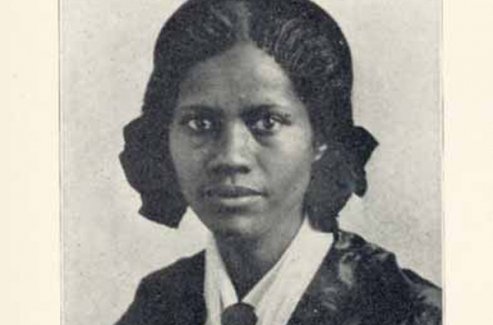

Today I wanted to share this speech given 125 years ago this day, by a black woman.

Frances Ellen Watkins Harper (September 24, 1825 – February 22, 1911) was an African-American abolitionist, suffragist, poet and author. She was also active in other types of social reform and was a member of the Woman’s Christian Temperance Union, which advocated the federal government taking a role in progressive reform.
Born free in Baltimore, Maryland, she had a long and prolific career, publishing her first book of poetry at the age of 20 and her widely praised novel Iola Leroy at the age of 67. In 1850, she became the first woman to teach sewing at the Union Seminary. In 1851, alongside William Still, chairman of the Pennsylvania Abolition Society, she helped escaped slaves along the Underground Railroad on their way to Canada. She began her career as a public speaker and political activist after joining the American Anti-Slavery Society in 1853.
On May 20, 1893, Frances Ellen Watkins Harper gave this speech before the World’s Congress of Representative Women, meeting in their conference in Chicago, Illinois.
![]()
If before sin had cast its deepest shadows or sorrow had distilled its bitterest tears, it was true that it was not good for man to be alone, it is no less true, since the shadows have deepened and life’s sorrows have increased, that the world has need of all the spiritual aid that woman can give for the social advancement and moral development of the human race. The tendency of the present age, with its restlessness, religious upheavals, failures, blunders, and crimes, is toward broader freedom, an increase of knowledge, the emancipation of thought, and a recognition of the brotherhood of man; in this movement woman, as the companion of man, must be a sharer. So close is the bond between man and woman that you cannot raise one without lifting the other. The world cannot move without woman’s sharing in the movement, and to help give a right impetus to that movement is woman’s highest privilege.
If the fifteenth century discovered America to the Old World, the nineteenth is discovering woman to herself. Little did Columbus imagine, when the New World broke upon his vision like a lovely gem in the coronet of the universe, the glorious possibilities of a land where the sun should be our engraver, the winged lightning our messenger, and steam our beast of burden. But as mind is more than matter, and the highest ideal always the true real, so to woman comes the opportunity to strive for richer and grander discoveries than ever gladdened the eye of the Genoese mariner.
Not the opportunity of discovering new worlds, but that of filling this old world with fairer and higher aims than the greed of gold and the lust of power, is hers. Through weary, wasting years men have destroyed, dashed in pieces, and overthrown, but today we stand on the threshold of woman’s era, and woman’s work is grandly constructive. In her hand are possibilities whose use or abuse must tell upon the political life of the nation, and send their influence for good or evil across the track of unborn ages.
As the saffron tints and crimson flushes of morn herald the coming day, so the social and political advancement which woman has already gained bears the promise of the rising of the full-orbed sun of emancipation. The result will be not to make home less happy, but society more holy; yet I do not think the mere extension of the ballot a panacea for all the ills of our national life. What we need today is not simply more voters, but better voters. Today there are red-handed men in our republic, who walk unwhipped of justice, who richly deserve to exchange the ballot of the freeman for the wristlets of the felon; brutal and cowardly men, who torture, burn, and lynch their fellow-men, men whose defenselessness should be their best defense and their weakness an ensign of protection. More than the changing of institutions we need the development of a national conscience, and the upbuilding of national character. Men may boast of the aristocracy of blood, may glory in the aristocracy of talent, and be proud of the aristocracy of wealth, but there is one aristocracy which must ever outrank them all, and that is the aristocracy of character; and it is the women of a country who help to mold its character, and to influence if not determine its destiny; and in the political future of our nation woman will not have done what she could if she does not endeavor to have our republic stand foremost among the nations of the earth, wearing sobriety as a crown and righteousness as a garment and a girdle. In coming into her political estate woman will find a mass of illiteracy to be dispelled. If knowledge is power, ignorance is also power. The power that educates wickedness may manipulate and dash against the pillars of any state when they are undermined and honeycombed by injustice.
